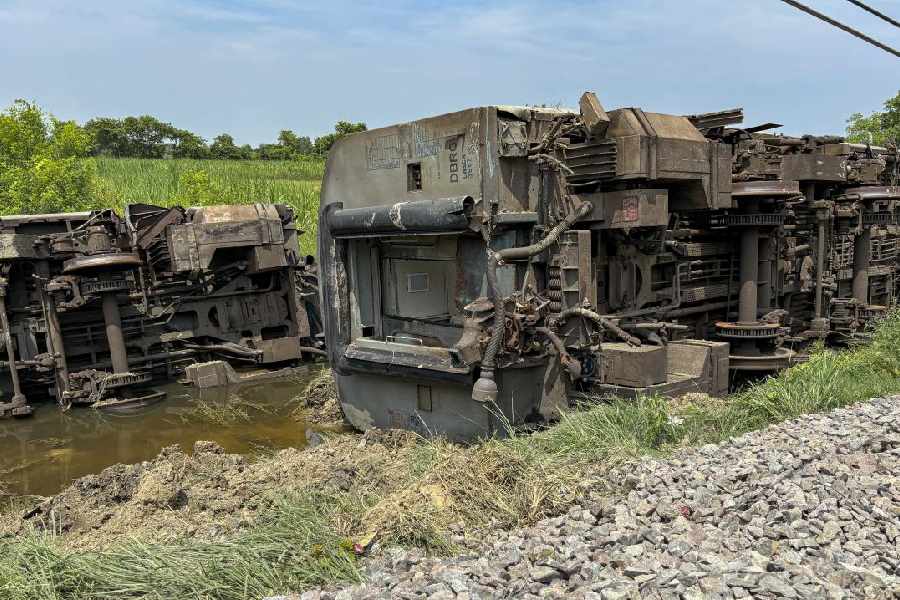A five-member team of senior railway officials investigating the derailment of Chandigarh-Dibrugarh Express has blamed improper fastening of the rail track for the accident, sources said. One member of the panel disagreed with the opinion.
"The fastening of rail track was not proper due to which fastening was working ineffectively," the report, written in Hindi, said.
All the same, the Chief Public Relations Officer of the North Eastern Railway Zone, under which the accident site comes, told PTI that arriving at any conclusion based on the joint probe report was incorrect.
"The investigation by the Commissioner of Railway Safety (CRS) has already started and the first hearing took place on Friday. It will go into the details of every aspect of the accident with technical specifications and minute details. Many crucial things don't come in the joint probe so it is very premature," the CPRO said.
Four people were killed and several injured on Thursday in the derailment of Chandigarh-Dibrugarh Express (Train no 15904) between Motiganj and Jhilahi railway stations near Gonda in Uttar Pradesh.
The investigation team's report said that the senior section engineer at the Lucknow division, under which the section comes, detected an IMR defect (immediate removal defect) at 1.30 pm and the Chandigarh-Dibrugarh Express crossed Motiganj station at 2.28 pm.
It said that at 2.30 pm, the station master of Motiganj was given a memorandum to put a speed restriction of 30 kmph for trains to cross the defective spot.
According to the report, the derailment happened at 2.31 pm when the engine crossed the defective spot.
"When IMR was detected (at 1.30 pm), the site should have been protected till the caution order was served but it was not done due to which the train derailed. The engineering department is responsible for it," the joint probe said.
A senior railway officer representing the engineering department wrote, "I completely disagree with the joint note," and cited several reasons, one of them being the measurement of the track, as he alleged improper fastening was done in his absence.
The officer said that it was incorrect to conclude that the site was not protected because the IMR spot was completely fine and it was not the reason for the derailment.
The officer alleged that the other members of the joint probe team rejected his request for various technical assessments such as wheel measurements, buffer height, and coupling of parcel vans.
The officer concluded that the train derailed because of improper braking by the loco pilot.
The joint probe team provided the details of the accident as recorded in the statement of the train crew.
It said that the loco pilot started from Motiganj Station at 2.28 pm at the speed of 25 kmph and while crossing KM no 638/12 (the defective spot) at 80 km speed, he experienced a strong jerk followed by a rattling sound, after which he applied an emergency break.
The loco pilot told the probe team that when the engine was stopped and when he looked back, he saw the derailment of coaches amid a heap of dust.
The probe team said that 19 coaches were derailed.
Except for the headline, this story has not been edited by The Telegraph Online staff and has been published from a syndicated feed.











